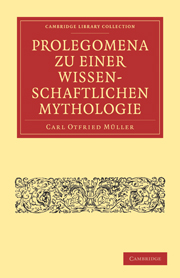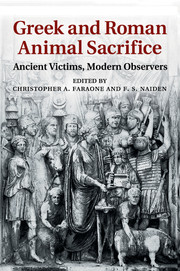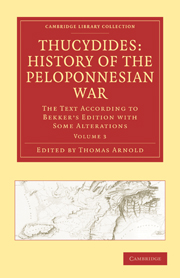Refine search
Actions for selected content:
23990 results in Ancient history
Appendix I - Cities and towns in early-imperial Cisalpina
-
- Book:
- Peasants, Citizens and Soldiers
- Published online:
- 05 October 2012
- Print publication:
- 05 April 2012, pp 289-303
-
- Chapter
- Export citation
Chapter 3 - Census procedures and the meaning of the republican and early-imperial census figures
-
- Book:
- Peasants, Citizens and Soldiers
- Published online:
- 05 October 2012
- Print publication:
- 05 April 2012, pp 79-134
-
- Chapter
- Export citation
Chapter 6 - Survey archaeology and demographic developments in the Italian countryside
-
- Book:
- Peasants, Citizens and Soldiers
- Published online:
- 05 October 2012
- Print publication:
- 05 April 2012, pp 247-283
-
- Chapter
- Export citation
Chapter 1 - Evidence, theories and models in Roman population history
-
- Book:
- Peasants, Citizens and Soldiers
- Published online:
- 05 October 2012
- Print publication:
- 05 April 2012, pp 1-39
-
- Chapter
- Export citation
Preface
-
- Book:
- Peasants, Citizens and Soldiers
- Published online:
- 05 October 2012
- Print publication:
- 05 April 2012, pp xv-xvi
-
- Chapter
- Export citation
Index
-
- Book:
- Peasants, Citizens and Soldiers
- Published online:
- 05 October 2012
- Print publication:
- 05 April 2012, pp 382-391
-
- Chapter
- Export citation

Prolegomena zu einer Wissenschaftlichen Mythologie
-
- Published online:
- 05 April 2012
- Print publication:
- 02 December 2010
- First published in:
- 1825
Epilogue
-
- Book:
- Peasants, Citizens and Soldiers
- Published online:
- 05 October 2012
- Print publication:
- 05 April 2012, pp 284-288
-
- Chapter
- Export citation
Tables
-
- Book:
- Peasants, Citizens and Soldiers
- Published online:
- 05 October 2012
- Print publication:
- 05 April 2012, pp ix-x
-
- Chapter
- Export citation
Chapter 5 - The Augustan census figures and Italy’s urban network
-
- Book:
- Peasants, Citizens and Soldiers
- Published online:
- 05 October 2012
- Print publication:
- 05 April 2012, pp 193-246
-
- Chapter
- Export citation
Peasants, Citizens and Soldiers - Half title page
-
- Book:
- Peasants, Citizens and Soldiers
- Published online:
- 05 October 2012
- Print publication:
- 05 April 2012, pp i-ii
-
- Chapter
- Export citation
Appendix III - Population figures for largest northern cities,ad1600
-
- Book:
- Peasants, Citizens and Soldiers
- Published online:
- 05 October 2012
- Print publication:
- 05 April 2012, pp 337-339
-
- Chapter
- Export citation

Greek and Roman Animal Sacrifice
- Ancient Victims, Modern Observers
-
- Published online:
- 05 April 2012
- Print publication:
- 22 March 2012
Bibliography
-
- Book:
- Peasants, Citizens and Soldiers
- Published online:
- 05 October 2012
- Print publication:
- 05 April 2012, pp 345-381
-
- Chapter
- Export citation
Copyright page
-
- Book:
- Peasants, Citizens and Soldiers
- Published online:
- 05 October 2012
- Print publication:
- 05 April 2012, pp iv-iv
-
- Chapter
- Export citation
Chapter 4 - Peasants, citizens and soldiers, 201bc–28bc
-
- Book:
- Peasants, Citizens and Soldiers
- Published online:
- 05 October 2012
- Print publication:
- 05 April 2012, pp 135-192
-
- Chapter
- Export citation
Appendix II - Cities and towns in central and south Italy
-
- Book:
- Peasants, Citizens and Soldiers
- Published online:
- 05 October 2012
- Print publication:
- 05 April 2012, pp 304-336
-
- Chapter
- Export citation
Contents
-
- Book:
- Peasants, Citizens and Soldiers
- Published online:
- 05 October 2012
- Print publication:
- 05 April 2012, pp v-viii
-
- Chapter
- Export citation

Thucydides: History of the Peloponnesian War
- The Text According to Bekker's Edition with Some Alterations
-
- Published online:
- 05 April 2012
- Print publication:
- 02 October 2010
- First published in:
- 1835
Appendix IV - Some ingredients for a revised low-count model
-
- Book:
- Peasants, Citizens and Soldiers
- Published online:
- 05 October 2012
- Print publication:
- 05 April 2012, pp 340-344
-
- Chapter
- Export citation
